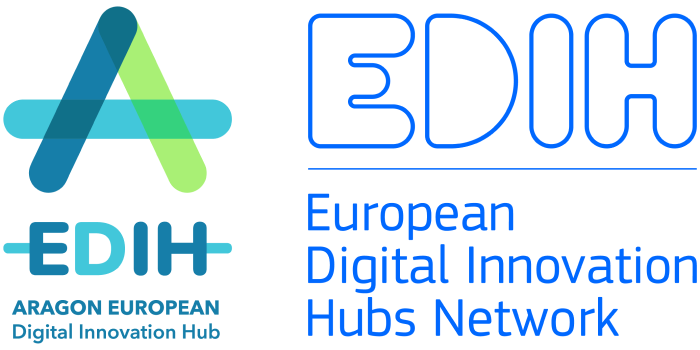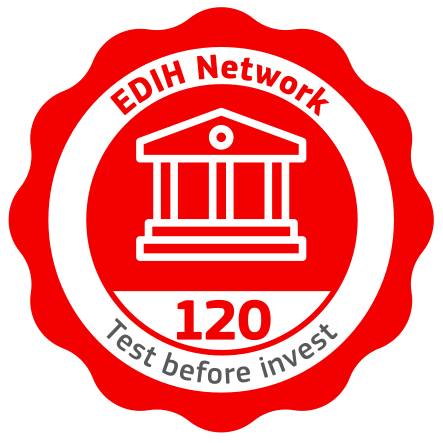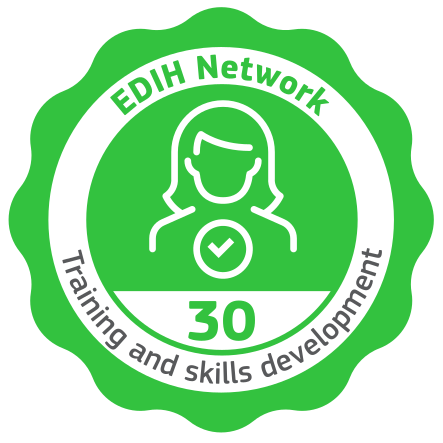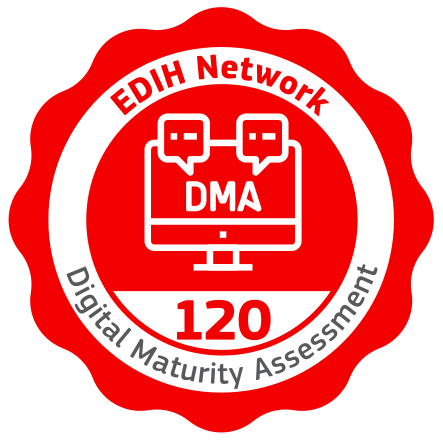Human language processing:
new speech and text processing techniques
Objectives
The main objectives of the module are to understand the complexity of human language analysis and computational linguistics, explore the potential of AI-based language models, analyze how language models are converging with knowledge representation techniques and semantic analysis, present the latest techniques and advances in speech and natural language processing, and provide practical examples where these techniques can be applied in real-world case studies.
Program
This module belongs to the Advanced training program of Aragón EDIH.
1. Exploring linguistic complexity: computational linguistics, human language and NLP
1.1 Introduction to computational linguistics
1.2 Complexity of analysis and challenges
1.3 Examples
2. The potential of Artificial Intelligence language models
2.1 The emergence of Transformers and Large Language Models (LLM)
2.2 Advantages and Limitations
2.3 Examples
3. Convergence of two universes: Language Models (LM) and knowledge representation / semantics
3.1. Automatic knowledge extraction based on language models
3.2 Importance of quality. Challenges
3.3 Examples
4. Introduction to speech technologies: Use of open source tools for the analysis of multimedia documents
4.1 Fundamentals of spoken language processing
4.2. Deep Learning Tools and Models applied to:
- Voice to text transcription,
- Speaker separation
- Speaker identification
- Voice generation
4.3. Workshop on the use of open source tools for processing audio contained in multimedia documents
5. Introduction to multimodal language models
5.1 Fundamentals of multimodal language models
5.2 Multimodal language tools and models
5.3 Workshop on application development with OpenAI CLIP, BLIP, …
Who is it for?
The course would be aimed at anyone interested in acquiring advanced skills and knowledge in the field of Natural Language and Speech Processing (NLP) and semantic analysis, and who wishes to explore the latest artificial intelligence techniques and applications in this ever-evolving field.
Requirements
- Fundamentals of Artificial Intelligence: Understand the concepts of Machine Learning, mainly supervised and unsupervised learning. It is useful to know Reinforcement Learning concepts.
- Fundamentals of Deep Learning applied to language: Basic concepts of deep neural networks and their application to the field of language: feed-foward, LSTM, Transformers.
- NLP (Natural Language Processing): Know the fundamental ideas about natural language processing; types of tasks: audio, text, classification, information retrieval, chatbots; and most common problems: normalization, ambiguity, languages, reasoning, etc.
- Fundamentals of knowledge graphs: Basic knowledge of knowledge graphs and information structuring: RDF, ontology, ...
- Python and Deep Learning libraries: Basic knowledge of Python programming and be familiar with popular Deep Learning libraries, such as Scikit-Learn, Transformers.
- Gmail account, familiarization with using Notebooks/Google Colab
- Own computer
Faculty
- Rafael del Hoyo
Big Data and Cognitive Systems Team, Aragon Institute of Technology
- Paula Peña
Big Data and Cognitive Systems Team, Aragon Institute of Technology
- Rosa Montanés
Big Data and Cognitive Systems Team, Aragon Institute of Technology
- Eduardo Lleida
University Professor. Vivolab, Aragon Engineering Research Institute, I3A, University of Zaragoza
- Antonio Miguel
Contracted Professor, PhD. Vivolab, Aragon Engineering Research Institute, I3A, University of Zaragoza
- Alfonso Ortega
University Professor. Vivolab, Aragon Engineering Research Institute, I3A, University of Zaragoza
Time, date and place
- Total duration: 18 hours
- Dates: 20, 21, 22, 27, 28 and 29 May 2025
- Hours: 16.00 h – 19.00
- Place: Technological Institute of Aragon. C/ María de Luna, 7 (white building). 50018 Zaragoza
- Maximum number of attendees: 15 people





